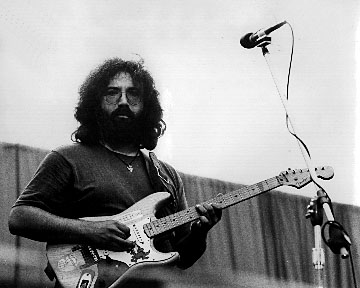|
Music
Ownership in the Digital Age Intellectual property protection in the age of digital music has few options -- three, to be exact. And if you ask Harvard Law School Professor Terry Fisher, only one is truly viable: the unfettered release of intellectual property, with profits distributed fairly among all interested parties. Fisher said. "The only way out of this is to develop a business model." Fisher's ideas were center-stage as he and other panelists took up the cloudy state of intellectual property in the digital age, where copying is a one-click proposition. The panel was part of "Signal or Noise? The Future of Music on the Net", a conference held Friday at Harvard Law School. The other options for keeping digital media under wraps -- legal enforcement of copyrights and digital copy-protection technology -- are about exercising control, Fisher said. As such, both have what may be insurmountable, Internet-driven obstacles to their success. "The record industry has not succeeded, nor have they failed," Fisher said of the Recording Industry Association of America's legal pursuit of Web sites distributing copyrighted music online. The outcome of the suits, and their impact on online piracy, is still unclear, he said. "The doctrinal basis of these [RIAA] suits is very solid. If they can be mounted, they would be very effective. The problem is it's hard to locate the target." The ease of Internet publishing and the difficulty of catching and prosecuting the publishers makes the task of enforcement very difficult, he said. Panelists also pointed out that if the RIAA is successful in suing the online music exchange service Napster, clones of the service, which exist already, will proliferate and will have to be pursued, resulting in an almost endless legal chase. Napster is a service that connects individual users' computers so they can swap MP3s without ever visiting a Web site, presenting an entirely new type of legal challenge to the recording industry's anti-piracy efforts. Copy-protection is another approach to intellectual property control that the recording industry favors. Protection schemes for digital music -- most notably the Secure Digital Music Initiative -- aim for a digital music format with the built-in ability to restrict consumer use and distribution of files. The problem with such protection is that the introduction of rules and limitations for consumers where none exist now will be unacceptable to the music consumer, Fisher said. "It comes at a huge social cost," he said. The ability for the consumer to record it and play it anywhere "would be shut down by the adoption of a secure format." Fisher's business-model solution to the intellectual property question puts much faith in the market success of the MP3 paradigm, relying on a still-hypothetical business model. Theoretically, at least, that model would legally give consumers what they want and enable profitable digital music companies -- obviating the need to control distribution. But proponents of the Secure Digital Music Initiative (SDMI) aren't ready to give up the notion of copy protection as the answer to the IP question. Panelist and engineer Karlheinz Brandenburg, who helped develop both MP3 and SDMI, laid out one SDMI-based market scenario. Brandenburg envisions a model in which a consumer can pass on music to others for sampling, and if her friends buy the music as a result, the original consumer receives a discount on her next purchase. Rules don't have to be unfriendly, Brandenburg said, and proposed that others associated with the "fair use" of music, which allow the owner of a CD to make a taped copy -- to play in a car, for example -- could be built into SDMI-based playback devices. Panelist Eric Sheirer, an engineer at the MIT Media Lab who has closely watched the development of the SDMI specification, said it is nonetheless critical that recording companies not be the ones to establish SDMI's rules. Public debate, rather, must influence the framework of SDMI, he said. He criticized the SDMI organization for limiting its $10,000 annual membership to only those with a vested interest in the music industry. Fisher pointed out that elements of fair use ideals were built into the Digital Millennium Copyright Act, but actually have little practical effect in protecting fair use of digital music. He fears the same fate for SDMI if the record industry is trusted to establish fair rules in the design and application of the technology. As is often the case at Internet music conferences, the future was deemed to be wide open. Reprising the panel's opening theme, moderator Jonathan Zittrain, who is also executive director of conference sponsor Berkman Center for Internet & Society, asked, "Will technology kill intellectual property or make it stronger?" "Technology had it on the mat," he answered. "But now [intellectual property is] fighting back, and it's a world of many possible futures." .
|

